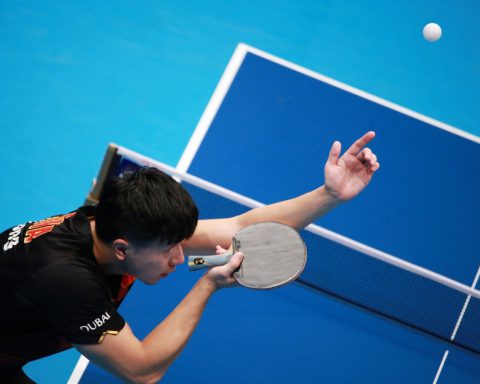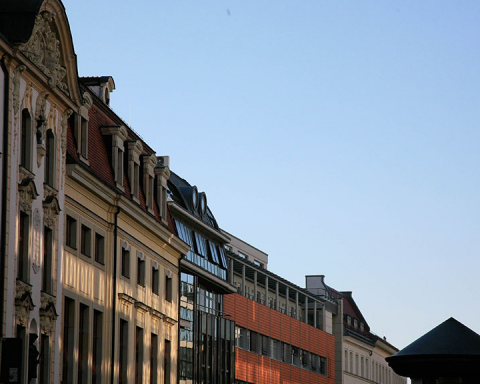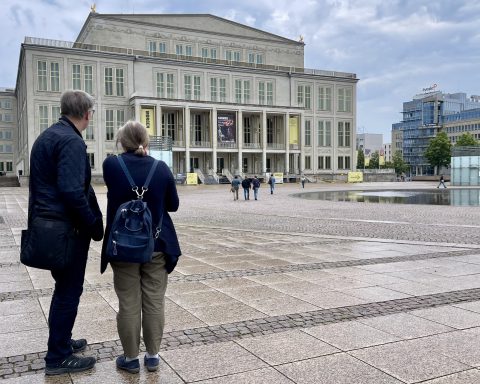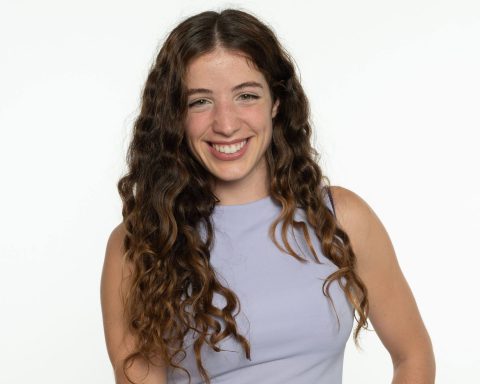Leipzig has been growing much faster in recent years, thanks to Germans moving in from other parts of the country and lots of international migrants. For many of these migrants, integration (the breaking down of barriers in a fragmented society) into a different language and customs is no easy feat. This is especially true for young refugees, many of who had to flee their countries due to war, as is the case for many Syrians and Afghans.
This is where F.C. International Leipzig (or Inter Leipzig) comes in.
Inter Leipzig has found the passion for football to be a common language and culture, shared among kids and young men whose mother tongues range from German to Arabic and Persian. With nine youth teams and one adult team, Inter Leipzig offers young people of all backgrounds the opportunity not just to sharpen their playing skills and enjoy the beautiful game, but also to mingle, build friendships, and improve their German.
Inter Leipzig began their work five years ago as a not-for-profit organization, or Verein. They have grown by setting themselves apart from other football clubs in Leipzig and the region around the issue of integration.
“In other football clubs, there is a resistance to refugees or integration activities,” said Inter Leipzig’s Managing Director Ulrike Schlupp and Marketing Manager Lisa Hartenhauer.
Other football clubs in Leipzig that are open to migrants and Germans tend to support left-leaning political views. Both Schlupp and Hartenhauer emphasized that it was important for Inter Leipzig to remain a politically neutral club – that is, focusing solely on football. This would make it more attractive for parents of migrant children that may be more conservative.
Another important integration effort by Inter Leipzig is to offer football team members language courses. This includes both German and English classes. They are not intensive courses, but nonetheless complement the language training that the children and teenagers receive at school.
In the wake of the Özil affair, projects like this gain even more significance.
Football as a point of reference for the successful integration of migrants in Germany is, in fact, nothing new. The German national team is an important example, with many of its players being second or third generation immigrants. However, this has come into question in light of Mesut Özil’s resignation from Die Mannschaft – the talisman of German integration on the football field – on grounds of racist treatment by the German Football Association.
The beautiful game cannot become a symbol of exclusion and a space for those seeking to define the nation based on racial lines – hence the importance of Inter Leipzig’s efforts. Schlupp and Hartenhauer stress that the club needs to remain accessible to the community; they have kept the monthly membership fee for players in the youth teams at less than €10 per month. Moreover, they are planning to open a women’s team.
It is via this type of work that people from all walks of life can feel included while enjoying this beautiful sport together.
And integration also occurs among the club’s training staff.
I was able to talk to Yasir Alawi, a 32-year-old co-trainer of an Inter Leipzig youth team (ages 15 to 17). He has worked in this position for about a year and a half, under the framework of a Bundesfreiwilligedienst, or “federal voluntary service.”
A refugee from Syria, Alawi talked very fondly about his experiences as co-trainer in the local club. He studied to be a sports teacher in Syria and played football himself from a young age. Hence, he was excited to get the position at Inter Leipzig.
“I told them I was a sports teacher who spoke Arabic and some German,” said Alawi. “They took me in and I have loved working for them; the entire team has been great to work with.”
Inter Leipzig is always looking for volunteers with knowledge of a foreign language, such as Arabic and Persian, according to Schlupp and Hartenhauer. This is, of course, needed for the club to fulfill its goal of making football a place of cultural integration.
I asked Alawi how many foreigners are in the youth team that he co-trains. He told me 12. I thought that meant 12 percent, but he corrected me by saying, “12 out of about 20.”
Therefore, there are players of many different backgrounds and language levels.
I wanted to know how Alawi goes about training teenagers in football, to which he responded:
“Since many of the players speak Arabic, when they don’t understand the instruction of a specific exercise, I first explain it in Arabic, and then repeat it in German. This allows them to learn in German what the exercise entails, and they are able to understand it and do it the next time around.”
Language is a barrier that these players, and anyone, can overcome given some time and training. The main difficulty, according to Alawi, is that you have to be strict with teenagers. This is something any educator would know.
Alawi said that his players often showed up late, or never came. Often he had to be very firm in his commands.
He elaborates:
“You have to be tough with teenagers, but I understand their behavior. We were once teenagers and wanted to do anything except what we were told to do.”
Alawi still plays football himself.
I asked him which position he plays, and he answered defensive midfielder. This is a position that requires the player to aggressively cut offensive plays and win the ball back.
Hence, I asked him if he was the kind of defensive midfielder who liked to tackle hard. He answered with a mischievous smile.
I guess that such attitude and passion for the game are needed for being a successful football trainer!
Do you want to take part in this project?
Inter Leipzig is currently looking for volunteers, especially under the framework of a “federal voluntary service.” If you agree with their goal of making Leipzig a more integrative city and love football, do check it out and drop them a line!










